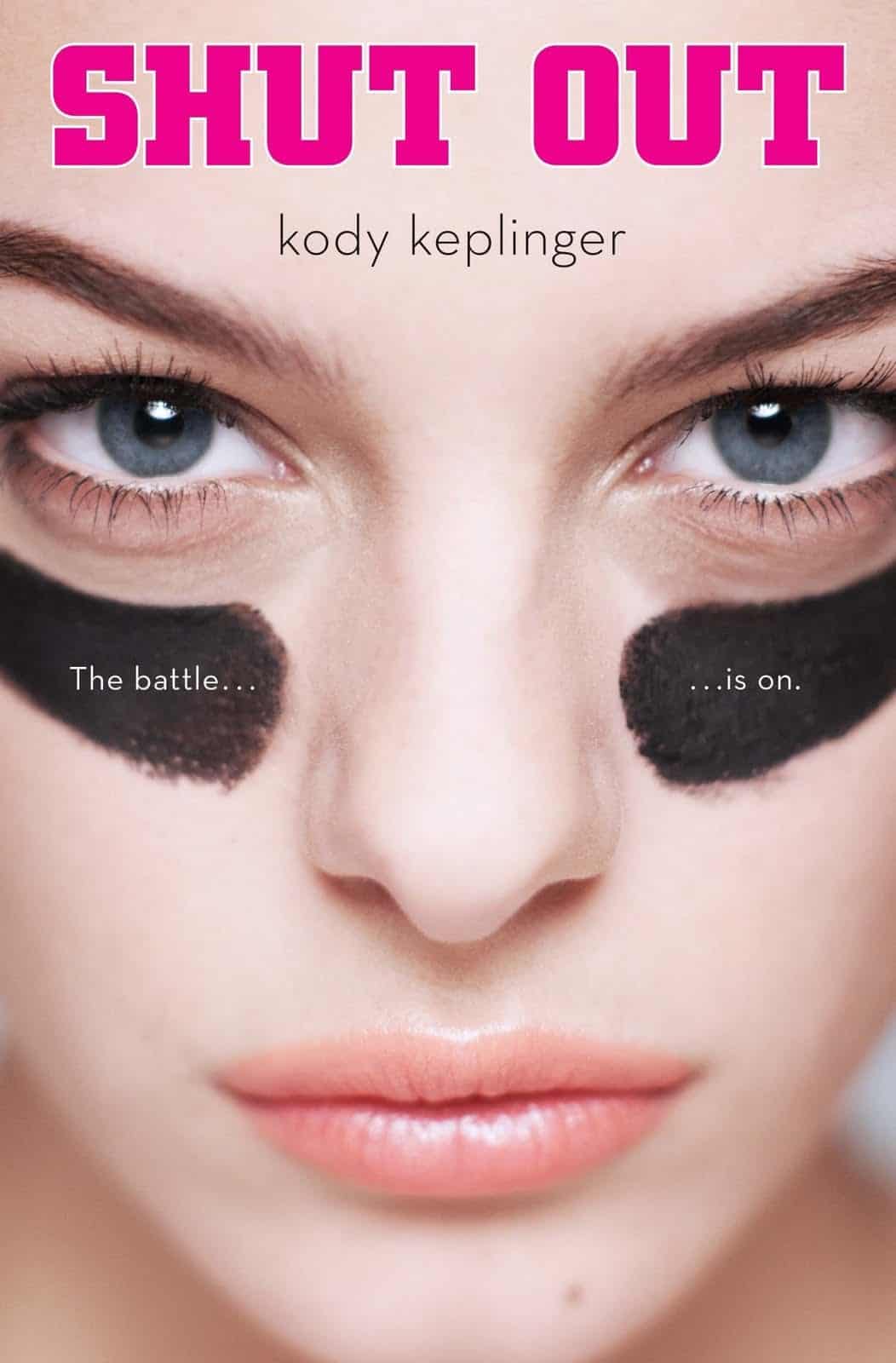A modern Lysistrata exceeds expectations (barely)

Shout Out is really good, and really bad
Author: alexandra antoneshyn – contributor
“There is nothing more humiliating than being topless in the backseat of your boyfriend’s car when someone decides to throw an egg at the windshield.” This was the opening line of Shut Out, a novel that I decided to review despite leaving the library with four other titles, all of which were by reputable authors and are – I am sure – intellectually stimulating reads. There were so many signs that I would be wasting my time if I chose to persevere: the model’s pouty, duck-faced pose on the front cover; the YA sticker on its spine (translation: the following novel is likely cliché, dependent, and hormone-ridden); and the preface that depicted a sexual standoff between high students (wait, what?). I proceeded with the expectation that this novel’s highest attribute would be grammar that surpassed Facebook-status quality.
Above-mentioned topless character is Lissa, the mastermind behind the “sex strike” that occurs at Hamilton High. What ignites such a rebellion is the decade-old prank feud between the boys’ football and soccer teams. Upset that her one-on-one time with boyfriend Randy comes second to the war, Lissa’s solution, which she rallies the other girlfriends to support, is to withhold sexual favours until the boys end their childish behaviour. What follows is a sexual standoff whose winner will be the gender least likely to succumb to their hormones.
I seriously doubted the aspirations of the society that inspired someone to write such a story, then I learnt that ancient Athenian playwright Aristophanes did it first. Called Lysistrata, the title character recruits women from all over Greece to manipulate their husbands’ lust until they end the Peloponnesian War.
While I appreciate author Kody Keplinger’s efforts to revitalize Aristophanes’ work, I am reluctant to say she was successful in doing so. Most importantly, the novel lacked any serious character and plot development. As if aware of this, Keplinger made her characters deal with real life issues, such as an accident that kills Lissa’s mother and handicaps her father, but their poor integration into the rest of the novel makes these struggles appear as failed attempts to add shock and emotional value. Shut Out is caught between parodying the original Greek comedy and wanting to produce a relatable novel, the latter lessening the story’s initial entertainment factor.
I also found the storyline predictable. I mean, Lissa had already broken up with Randy (boyfriend #1) once before, cringed every time he touched her, felt butterflies when soccer player Cash Sterling was around, and still ended up with Cash instead of Randy?! No! I never saw it coming!!
My last criticism is Keplinger’s reference to Lysistrata within Shut Out, which is neither obvious enough as a comment on the novel mimicking the Greek play nor subtle enough to let the reader arrive at this conclusion on their own. In fact, the novel barely devotes a one-sentence summary to Aristophanes’ work, as though Keplinger wanted to ensure readers knew he was paralleling Lysistrata and the reference made his story more impressive.
But hey, the grammar was good.
Perhaps this novel’s most redeeming quality, although inadequately explored, was the issues it confronted regarding teens, sex, and gender stereotypes. Before all of the girls agreed to support Lissa, their main concern was that the guys would either dump or cheat on them once the sex strike started. The idea that sex is the most important element of a relationship is one that many, especially young teens, struggle with. Unable to recognize the autonomy in deciding to cheat on a person, the girls even blamed who they considered the school’s slut for their boyfriends’ unfaithfulness. Keplinger also made it clear that there is no expiration date on virginity or a right way to enjoy sex – only the way that you are comfortable and happy with.
Shut Out also exemplified some of today’s double standards surrounding gender and sex. When justifying why Lissa’s friend, and not a football buddy who had slept with more people than her, deserved to be called a whore, Randy replied with the stereotypical “Shane’s the man.” It also pointed out the discrimination that takes place when both a man and woman flirt their way through a gymnasium full of people, but only the latter gets called a “cock tease.” And let’s not even begin on the use of words like “slut”, “whore”, and “cock tease,” because, frankly, I’m already over the word limit here.
Not exactly what I call enlightening material, Keplinger’s Shut Out is, admittedly, a unique twist on Aristophanes’ original. But I wouldn’t expect to see it on a university syllabus any time soon.










